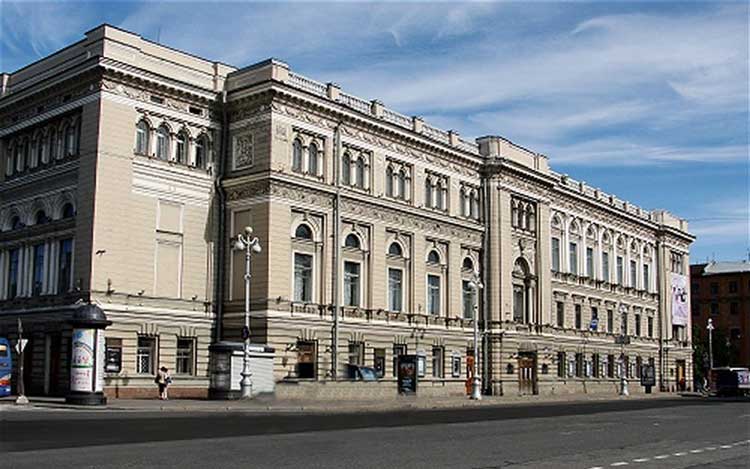 Next year is the 135th anniversary of Stravinsky’s birth, so it is entirely appropriate that a piece long thought lost during the Russian revolution has been found. There is a ‘missing link’ between Stravinsky’s earlier work, exemplified by “The Firebird“ with its quasi oriental exoticism influenced by Rimsky-Korsakov, to “Le Sacre du Printemps“ influenced by Nicholas Roerich. The difference in composition is startling, the earlier pieces from the romance of the Imperial Russian Court and elements of the East, to a far more rhythmic and tribal piece. The gap between the two proved too much for many concert goers at the time, the audience famously rioting when Sacre was first performed.
Next year is the 135th anniversary of Stravinsky’s birth, so it is entirely appropriate that a piece long thought lost during the Russian revolution has been found. There is a ‘missing link’ between Stravinsky’s earlier work, exemplified by “The Firebird“ with its quasi oriental exoticism influenced by Rimsky-Korsakov, to “Le Sacre du Printemps“ influenced by Nicholas Roerich. The difference in composition is startling, the earlier pieces from the romance of the Imperial Russian Court and elements of the East, to a far more rhythmic and tribal piece. The gap between the two proved too much for many concert goers at the time, the audience famously rioting when Sacre was first performed.
The piece that has been found dates from 1908, and received its only performance at a memorial concert for Nikolai Rimsky-Korsakov, Stravinsky’s teacher, who had just died. That dates it right between Firebird and Sacre, and gives it historical importance. Stravinsky’s piece “Funeral Song” contains 106 bars and was discovered in a box full of archived material at the St.Petersburg Conservatoire (pictured above) that were due to be discarded. It is easy to imagine during the uproar of the 1917 revolution how scores and objects were misplaced, we are fortunate that contemporary Russia is diligent in sifting through its archaic history. Found in 2015, the score was restored for orchestra, although not without some haggling over publishing and performance rights between the Conservatoire, the Stravinsky estate and his publisher, Boosey and Hawkes.
Once sorted out however, there was only one destination for a second performance – just across the road at the Mariinsky Theatre. Is the piece Stravinsky’s missing link? Perhaps not – he was close to Rimsky-Korsakov and would have been more occupied with leaving a suitable tribute. Stravinsky himself was fond of it, citing “Funeral Song” as one of his best early works, although influences can be heard – Wagner as well as his mentor. Stravinsky had not quite yet found his own distinctive style. Despite the sadness of the title though, it’s a worthy piece, with Valery Gergiev conducting it just last week. And here it is, for the first time since 1909: